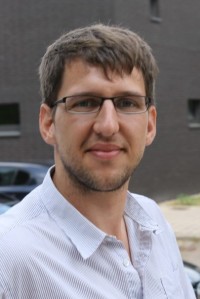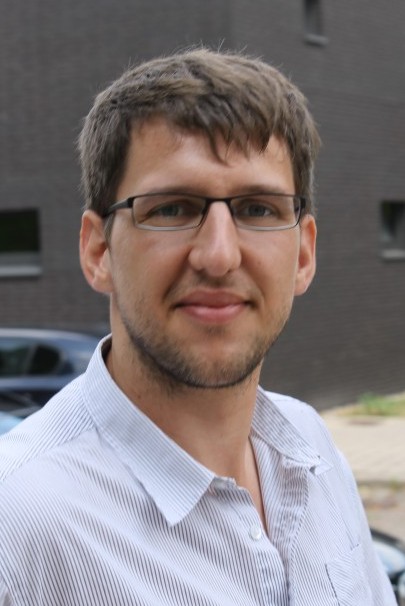
PhD Student in the MathOpt research group
at the Faculty of Mathematics
at the Otto von Guericke University Magdeburg
Address
Universitätsplatz 2, 02-221a
39106 Magdeburg, Germany
phone: +49 391 67 51449
fax: +49 391 67 41171
Short CV
A long version is available on request.
Education
| July 2015 – present: |
Otto von Guericke University PhD student and research assistant |
| Oct. 2011 – July 2014: |
Otto von Guericke University (Magdeburg) Master of Science in Mathematics, specialized in Optimal Control |
| Apr. 2009 – Dec. 2012: |
Otto von Guericke University (Magdeburg) Bachelor of Science in Computermathematics |
| Oct. 2007 – March 2009: |
Martin-Luther-University (Halle) Teacher training (mathematics and computer science) |
Experience
| March 2014 – June 2015: |
IBM Services Center, Magdeburg, Germany Application Development and project lead |
| April 2013 – Jan. 2014: |
Volkswagen AG, Wolfsburg, Germany Master thesis and internship: Non-linear model-predictive control applied to the example of a cooling-cycle of a car |
Research interests
- Global Optimal Control
- Modelling of Erythropoiesis
- Nonlinear Mixed-Integer Dynamic Optimization
- Nonlinear Model-Predictive Control
- Applications in medicine (blood diseases)
@article{Plate2024,
author = {Plate, C. and Sager, S. and Stoll, M. and Tetschke, M.},
title = {Second-Order Partial Outer Convexification for Switched Dynamical Systems},
journal = {IEEE Transactions on Automatic Control},
publisher = {IEEE},
year = {2024},
doi = {10.1109/TAC.2017.2697681}
}
@article{Sager2024,
author = {Sager, Sebastian and Tetschke, Manuel and Zeile, Clemens},
title = {A numerical study of transformed mixed-integer optimal control problems},
journal = {Mathematical Programming Computation},
year = {2024},
url = {https://optimization-online.org/2020/03/7698/}
}
@article{Lilienthal2020,
author = {Lilienthal, P. and Tetschke, M. and Schalk, E. and Fischer, T. and Sager, S.},
title = {Optimized and Personalized Phlebotomy Schedules for Patients suffering from Polycythemia Vera},
journal = {Frontiers in Physiology},
publisher = {Frontiers},
year = {2020},
volume = {11},
pages = {328},
url = {http://journal.frontiersin.org/article/10.3389/fphys.2020.00328}
}
@article{Tetschke2018,
author = {Tetschke, M. and Lilienthal, P. and Pottgiesser, T. and Fischer, T. and Schalk, E. and Sager, S.},
title = {Mathematical Modeling of {RBC} Count Dynamics after Blood Loss},
journal = {Processes},
year = {2018},
volume = {6},
number = {9},
pages = {157--185},
doi = {10.3390/pr6090157}
}
@mastersthesis{Tetschke2014,
author = {Tetschke, M.},
title = {{N}ichtlineare {M}odell--pr\"adiktive {R}egelung am {B}eispiel eines {PKW}--{K}\"uhlkreislaufes},
school = {Otto-von-Guericke Universit\"at Magdeburg},
year = {2014}
}
@inproceedings{10.1007/978-1-4614-1590-9_3,
author = {Heil, Peter and Neubauer, Heinrich and Tetschke, Manuel and Irvine, Dexter R. F.},
title = {A Probabilistic Model of Absolute Auditory Thresholds and Its Possible Physiological Basis},
booktitle = {Basic Aspects of Hearing},
publisher = {Springer New York},
year = {2013},
editor = {Moore, Brian C. J. and Patterson, Roy D. and Winter, Ian M. and Carlyon, Robert P. and Gockel, Hedwig E},
pages = {21--29},
address = {New York, NY}
}



